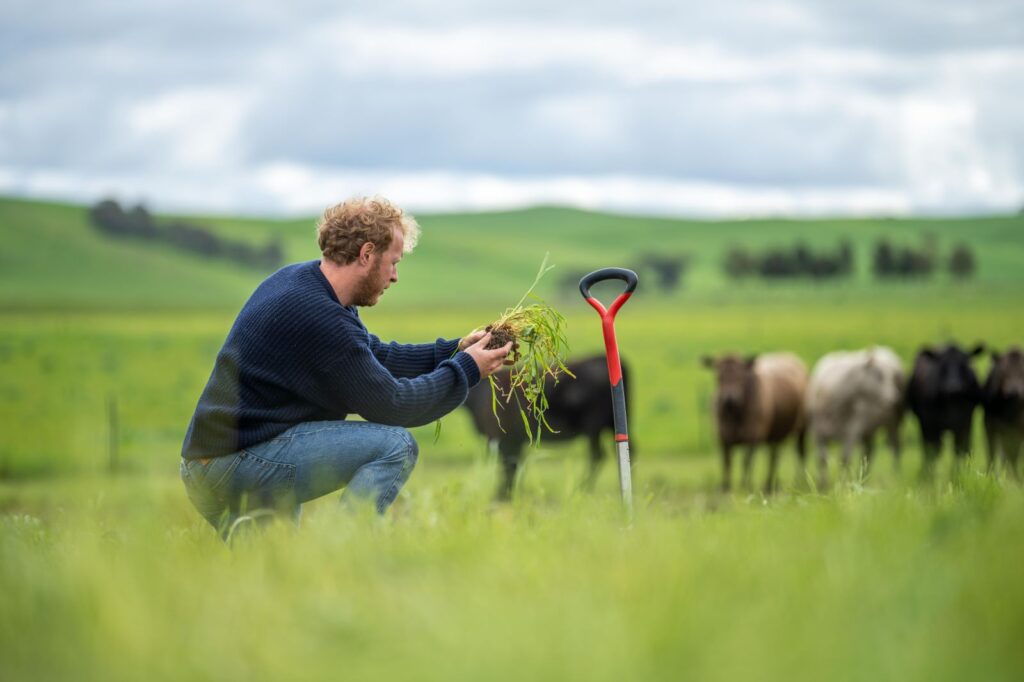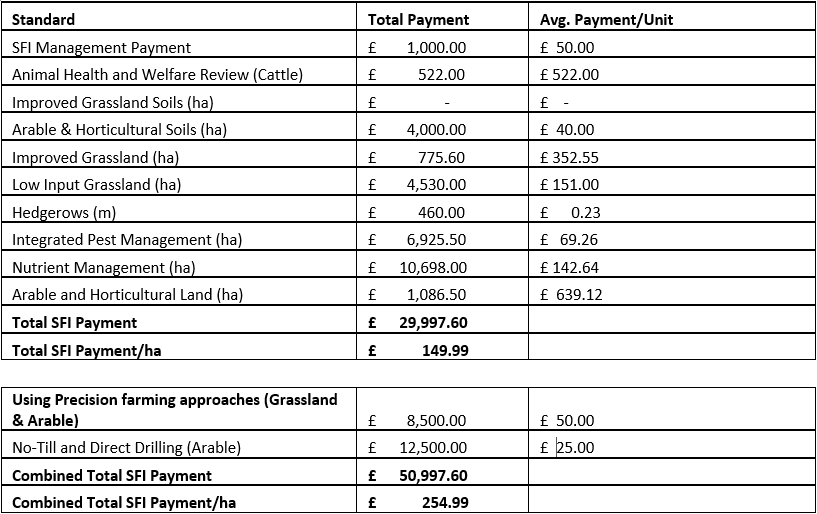SFI payments could soon exceed historic BPS income
28th March 2023
Rural land and property specialists GSC Grays believe some farms could be better off under the Sustainable Farming Incentive (SFI) scheme and urged farmers to consider transitioning to a regenerative farming system.
The SFI payment scheme aims to encourage sustainable food production while reducing the environmental impact of farming. Using a theoretical model farm and applying all options that will be available by summer 2023, GSC Grays experts have calculated SFI payments could exceed historic Basic Payment Scheme (BPS) payments (£232.22/ha in 2020).
However, to achieve the higher rate, farmers must already manage the land within a regenerative system or be prepared to make the necessary investments and changes to their farming operations, GSC Grays added.
These include incorporating cover crops and companion crops within arable rotations, the widespread use of legumes within improved grassland, abandoning insecticides, investing in precision farming equipment, switching to a no-till system and establishing environmental buffer strips and plots.
Farmers must also note that payment rates per hectare will vary according to farm size, and larger farms could see some payments diluted by virtue of their scale.
Following Defra’s February announcement of six additional standards for SFI and indication of payment rates for a further 4 standards available in summer 2023, GSC Grays has put together a table showing what this means in practice.
The table (see below) is based on a 200 ha mixed farm comprising 100 ha of arable land, 70 ha of improved grassland and 30 ha of unimproved grassland with an extensive application of the SFI Standards, assuming options are maximised where possible.
It should be noted that ‘Avg. Payment’ rates for some standards listed in the table will vary by farm, as standards combine a variety of payment rates and ambition levels, resulting in varying averages. Moreover, there are still grey areas within the SFI guidance such as the requirements and confirmed payment rates of the standards to be released this summer.
Jamie Charlton, GSC Grays farm business consultant, said: “Up to now, the payment rates released by DEFRA to encourage the transition to a regenerative farming model have not provided sufficient financial incentive to justify making the switch.”
However, with further standards now on the way, he added: “ We expect to see an increase in businesses questioning whether their current farming system is the most profitable and sustainable within the new support payment structure.”
While the cost of applying these transitions will vary by farm, Mr Charlton said these must be evaluated against the possible cost-savings achieved as a result. These could include reduced fuel consumption and fertiliser use, improved water retention due to better soil health, and higher yields due to enhanced ecosystem services.


